BY KAT BRAZ
Lafayette Urban Ministry (LUM) established its Immigration Clinic in 2014. That year, the clinic saw 70 clients, providing assistance with various issues such as citizenship, consideration for DACA, applying for emergency visas, asylum or green cards.
Over the past seven years, the program has continued to grow, offering services to clients looking to legally immigrate into the United States. These are people who have already relocated to the Greater La-fayette community and are seeking legal assistance to acquire a visa, green card or gain citizenship status.
“It’s the only clinic offering immi-gration services of its kind within the surrounding eight-county area,” says Rev. Wes Tillett, executive di-rector of LUM. “We provide aid to a variety of people of different status-es, refugees, asylum seekers, people needing a work visa or a green card. Our clients could be feeling violence in their home country or just trying to get a better start for their family in the United States.”
According to data from the U.S. Census Bureau, approximately 12 percent of Tippecanoe County’s population are foreign-born—that’s more than 23,000 residents. Of those, around 18,000 individuals are non-citizens, which include some people who do not consider themselves true immigrants, such as international students and expatriates from other countries.
In 2020, the LUM Immigration Clinic provided help in 120 different cases, down from 256 in 2019. Due to the pandemic, LUM was not able to hold its popular citizenship class-es in partnership with the Lafayette Adult Resource Academy. Still, a dedicated group of about a dozen trained and accredited volunteers has pressed on, under the leadership of the clinic’s two paid positions
— a full-time director and half-time assistant director — to keep the clinic operating under COVID-19 protocols.
“A lot of the work is just listening and learning the person’s story,” Tillett says. “We have to understand who the person is in front of us, where they are at and how they got here. And sometimes, the stories are just heartbreaking to hear what they are up against, what they are trying to flee or what they are working toward.”
Immigration Clinic Director Christian Gallo grew up in Bue-nos Aires, Argentina. He earned his bachelor’s degree from Cole-gio Champagnat, master in laws degree from Indiana University, and JD from Universidad Católica Argentina. Gallo has many years of experience in immigration law and speaks four languages: Spanish, English, Italian and Portuguese. His first-hand experience as an immi-grant himself enables him to quickly build rapport with many clinic clients.
“I understand what these peo-ple go through to immigrate to the U.S.,” Gallo says. “Some of them went through a lot of dangers to get here. And even if they didn’t, they arrive here and can feel kind of lost. Sometimes receiving a little help with something simple can mean so much to a person who is new to the country and doesn’t understand how bureaucracy works here.
“We are not just helping people get a better job or more income. We are changing their lives. We are giving them opportunities for themselves and for their families, for their children.”
For Gallo, every case is person-al. The needs to be met can vary immensely. Some clients might be looking for a better job or higher income, others might be trying to re-unite with a wife or child or perhaps it’s a trailing academic spouse who followed their partner to the area and now wants to establish citizen-ship or apply for a work visa.
“It’s very rewarding work,” Gallo says. “When you see the looks on their faces, that sensation of extreme happiness, it means so much. Sometimes they don’t have words, they just repeat ‘thank you’ over and over. In that instant, their life just changed for the better.”
Whether a person entered the country legally or illegally, they can still be entitled to certain benefits under the law. The mission of the clinic is to help people who are already in the area —encompassing Tippecanoe and surrounding counties — get access to those benefits, regardless of their immigration status. It’s work that aligns with LUM’s overall mission as an organization with a Judeo-Christian heritage.
“Our organization has strong Judeo-Christian roots,” Tillett says. “Harkening back to the Exodus story, there is definitely a command to be hospitable to the sojourner in your midst, because you, too, were once foreigners in Egypt. That command is still pertinent to Jews and Christians trying to obey those scriptures. From a core theological standpoint, that’s part of who we are and part of what we’re trying to do.
“On a more humanitarian level, we are simply trying to be good neighbors. We especially want
to fill the gaps in the community where no other organization is able to meet that need. Immigration is one of those areas, especially seven years ago, that LUM identified as something we could do to help our neighbors from other parts of the world who are having a difficult time navigating through the bureaucracy and getting the legal status that they need.”
The impact of the clinic is summed up by a note of thanks Jaqueline Valera wrote to LUM expressing gratitude for the assistance she and her husband, Ricardo, received from the clinic.
“Since obtaining the LUM Immigration Clinic’s help with our immigration process, my husband was able to obtain his work permit. His income has helped me out with my family and school debt. I no longer have to work two or three jobs. I no longer have to miss important family moments. I no longer have to choose work over my health. We would not be where we are today without your help.” ★



